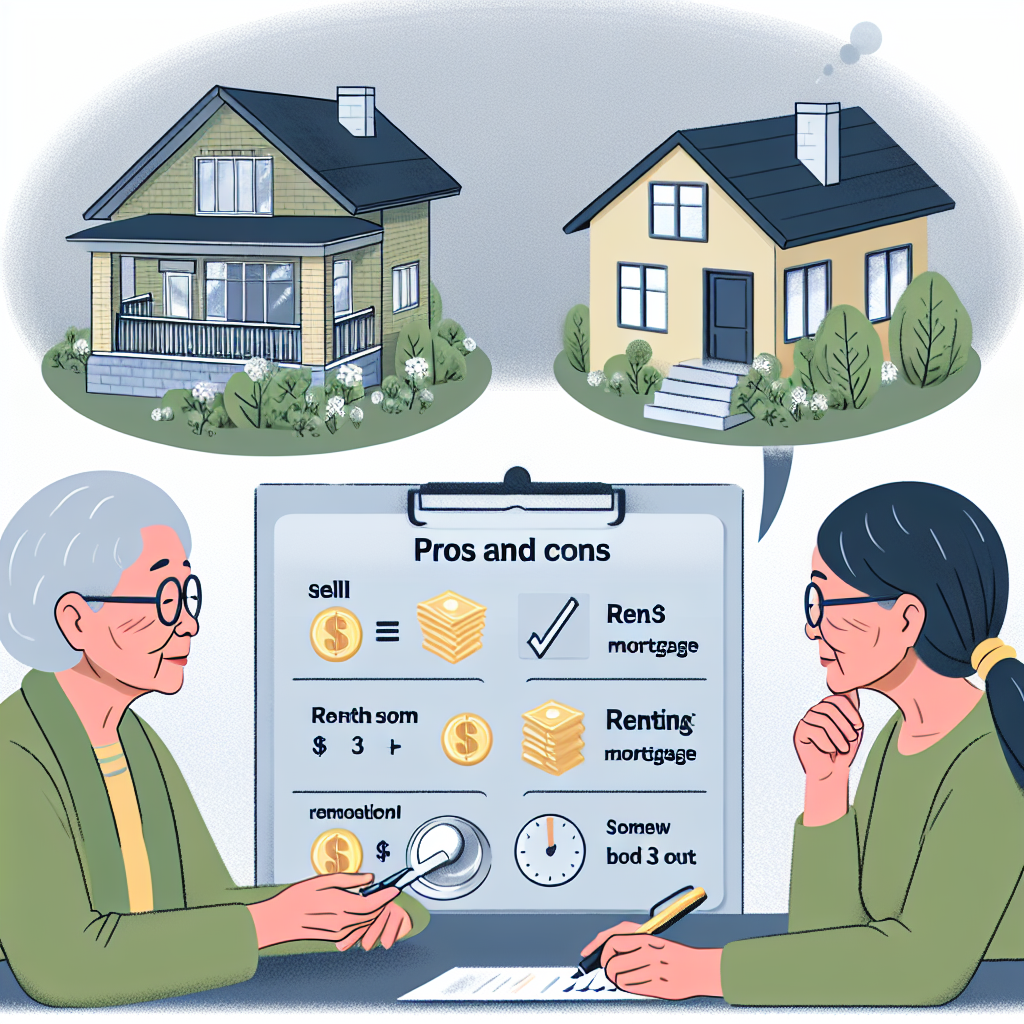-
Table of Contents
- Why I Chose to Sell My 3% Mortgage Property Instead of Renting It Out
- The Appeal of a 3% Mortgage
- Personal Circumstances
- Market Conditions
- Financial Considerations
- Opportunity Cost
- Cash Flow Analysis
- Case Studies and Examples
- Case Study 1: The Smith Family
- Case Study 2: The Johnsons
- Statistics and Data
- Conclusion
Why I Chose to Sell My 3% Mortgage Property Instead of Renting It Out

In the world of real estate, the decision to sell or rent out a property is often fraught with complexities. As a homeowner with a 3% mortgage, I faced this very dilemma. While renting out the property seemed like a lucrative option, I ultimately decided to sell. This article delves into the reasons behind my decision, supported by research, examples, and statistics.
The Appeal of a 3% Mortgage
A 3% mortgage is undeniably attractive. With interest rates at historic lows, such a mortgage offers significant financial advantages:
- Lower Monthly Payments: A 3% interest rate translates to lower monthly mortgage payments, making homeownership more affordable.
- Increased Equity: Lower interest rates mean that a larger portion of each payment goes toward the principal, building equity faster.
- Potential for Higher Returns: The savings from lower interest payments can be invested elsewhere for potentially higher returns.
Given these benefits, one might wonder why I chose to sell rather than rent out the property. The answer lies in a combination of personal circumstances, market conditions, and financial considerations.
Personal Circumstances
Personal circumstances play a crucial role in real estate decisions. Here are some factors that influenced my choice:
- Relocation: I had to relocate for a new job opportunity, making it impractical to manage a rental property from afar.
- Time and Effort: Managing a rental property requires significant time and effort, from finding tenants to handling maintenance issues. With a demanding job, I couldn’t commit to these responsibilities.
- Risk Tolerance: Renting out a property comes with risks, such as tenant defaults and property damage. I preferred the certainty of a sale over the uncertainties of being a landlord.
Market Conditions
Market conditions also played a pivotal role in my decision. The real estate market is dynamic, and timing can significantly impact financial outcomes:
- Seller’s Market: At the time of my decision, the real estate market was experiencing high demand and low inventory, creating a seller’s market. This meant I could sell my property at a premium.
- Rising Property Values: Property values in my area had appreciated significantly. Selling allowed me to capitalize on this appreciation and secure a substantial profit.
- Interest Rates: While my 3% mortgage was advantageous, rising interest rates meant that potential buyers were eager to lock in lower rates, increasing demand for my property.
Financial Considerations
Financial considerations were perhaps the most compelling reason for my decision to sell. Here are some key factors:
Opportunity Cost
Opportunity cost refers to the potential benefits one misses out on when choosing one alternative over another. By selling my property, I could:
- Invest in Higher-Yield Assets: The proceeds from the sale could be invested in higher-yield assets, such as stocks or mutual funds, offering potentially greater returns than rental income.
- Pay Off Debt: Selling the property allowed me to pay off high-interest debt, improving my overall financial health.
- Reinvest in Real Estate: I could reinvest the proceeds in another real estate opportunity with better growth potential.
Cash Flow Analysis
Cash flow analysis is essential when deciding between selling and renting. Here’s a breakdown of my analysis:
- Rental Income: While rental income can provide a steady cash flow, it is often offset by expenses such as property management fees, maintenance costs, and vacancies.
- Net Profit from Sale: Selling the property provided a lump sum profit, which, when invested wisely, could generate higher returns than rental income.
- Tax Implications: Selling the property allowed me to take advantage of capital gains tax exemptions, further enhancing my net profit.
Case Studies and Examples
To further illustrate my decision, let’s look at some real-world examples and case studies:
Case Study 1: The Smith Family
The Smith family owned a property with a 3% mortgage. They considered renting it out but ultimately decided to sell. Here’s why:
- High Demand: The property was in a high-demand area, allowing them to sell at a premium.
- Relocation: They were relocating to another state, making property management challenging.
- Investment Opportunities: The proceeds from the sale were invested in a diversified portfolio, yielding higher returns than rental income.
Case Study 2: The Johnsons
The Johnsons faced a similar dilemma but chose to rent out their property. Here’s how their experience differed:
- Rental Income: They enjoyed a steady rental income but faced challenges such as tenant turnover and maintenance costs.
- Property Management: They hired a property management company, which reduced their net income due to management fees.
- Market Fluctuations: Property values in their area stagnated, limiting their potential profit from a future sale.
These case studies highlight the importance of individual circumstances and market conditions in making real estate decisions.
Statistics and Data
Let’s look at some statistics and data to support the points discussed:
- Rental Income vs. Property Appreciation: According to a study by the Urban Institute, property appreciation often outpaces rental income, making selling a more lucrative option in many cases.
- Property Management Costs: The National Association of Residential Property Managers (NARPM) reports that property management fees typically range from 8% to 12% of monthly rental income, significantly impacting net cash flow.
- Capital Gains Tax Exemptions: The IRS allows homeowners to exclude up to $250,000 ($500,000 for married couples) of capital gains from the sale of a primary residence, providing a substantial tax benefit.
Conclusion
In conclusion, the decision to sell my 3% mortgage property instead of renting it out was influenced by a combination of personal circumstances, market conditions, and financial considerations. While renting out the property offered the potential for steady income, the opportunity cost, cash flow analysis, and favorable market conditions made selling the more attractive option. By selling, I was able to capitalize on property appreciation, invest in higher-yield assets, and improve my overall financial health.
Ultimately, the choice between selling and renting is highly individual and depends on various factors. Homeowners should carefully evaluate their personal circumstances, market conditions, and financial goals before making a decision. By doing so, they can make informed choices that align with their long-term objectives.
Whether you choose to sell or rent out your property, understanding the pros and cons of each option is crucial. I hope this article provides valuable insights and helps you make the best decision for your unique situation.








